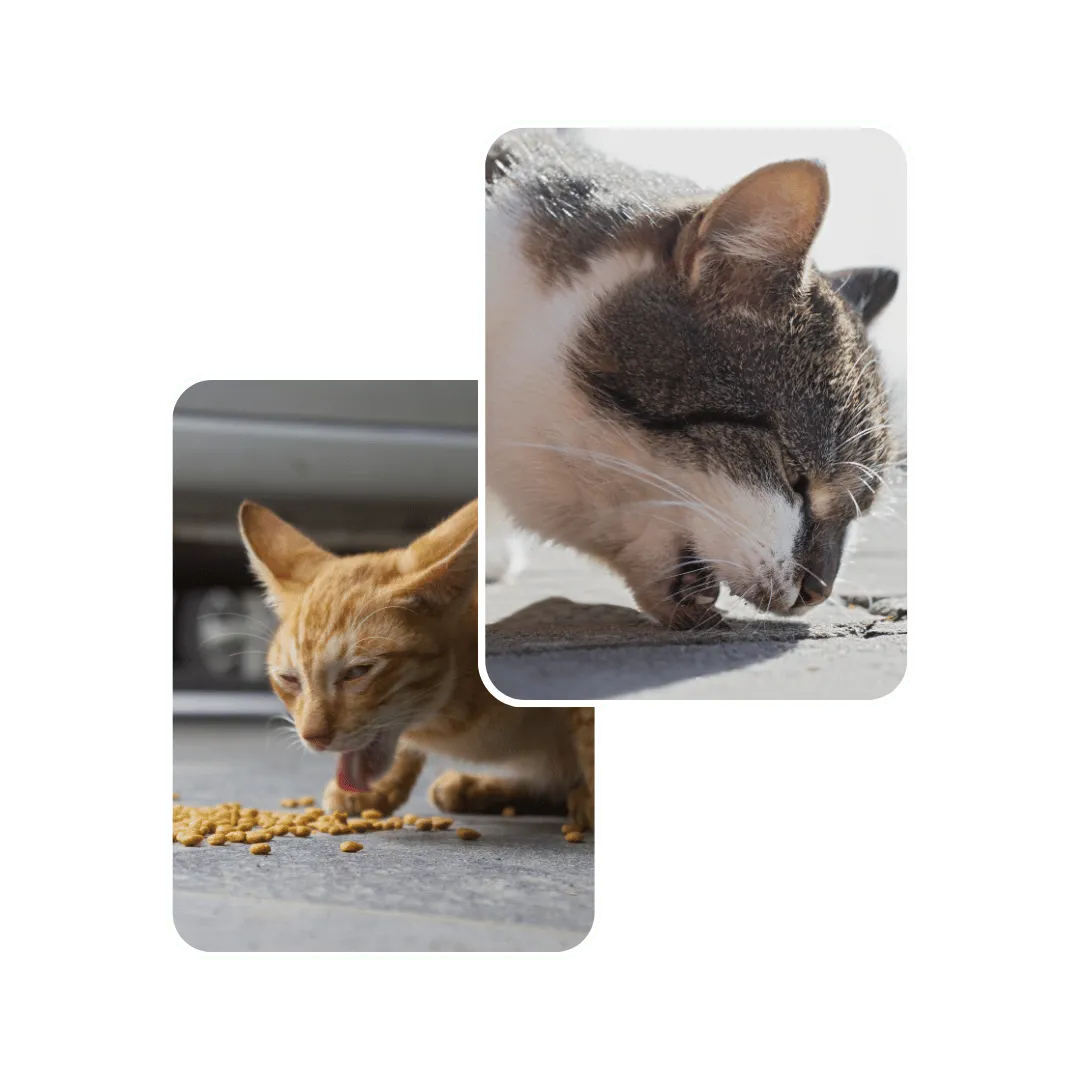
Cats vomit for many different reasons. Sometimes it’s as simple as eating too quickly or coughing up a hairball. Other times, vomiting is triggered by food allergies, spoiled food, parasites or infections. Chronic vomiting can also be a sign of kidney disease, liver problems or gastrointestinal issues. Because vomiting looks the same no matter the cause, it’s important to identify the reason early to avoid complications.

You may hear your cat making hacking or choking sounds as they try to bring something up. This is a common sign that vomiting is about to happen.
The vomit itself can look different depending on the cause. Sometimes it’s undigested food, other times it’s clear fluid, yellow bile or clumps of hair. Paying attention to what your cat vomits can help the vet find the cause.
Vomiting makes cats lose a lot of fluid quickly. Signs of dehydration include dry or sticky gums, sunken eyes and skin that doesn’t spring back right away when gently pulled.
Cats often stop eating when their stomach feels upset. If your cat avoids food for more than a day, this is a sign that vomiting is linked to a bigger issue.
When vomiting happens often, your cat may not absorb enough nutrients from food. Over time, this leads to visible weight loss, a thinner body frame and a dull coat.
Sometimes vomiting comes with diarrhea, blood in the vomit or a swollen belly. These are red flags that your cat needs immediate veterinary care.
Yes, occasional vomiting can be normal, especially if your cat coughs up a hairball. But frequent vomiting is not normal and should be checked.
Many cats eat too quickly, which causes food to come back up. Slowing down feeding or using puzzle feeders can help, but repeated vomiting may signal something more.
If your cat vomits more than once in a day, if there’s blood in the vomit or if they refuse to eat and look weak, see a vet immediately.
Yes. Kidney disease, liver problems, intestinal blockages, and infections can all cause vomiting. That’s why finding the cause is so important.
For mild cases, you can try offering small amounts of water and a bland diet. But if vomiting continues beyond a day, or if your cat seems unwell, it’s safest to see a vet.
Simply click the Appointment button on our website or call us directly. Online booking saves you time and ensures your cat gets.
Your pet deserves expert care – Subscribe now for trusted tips and updates from our pet experts.
